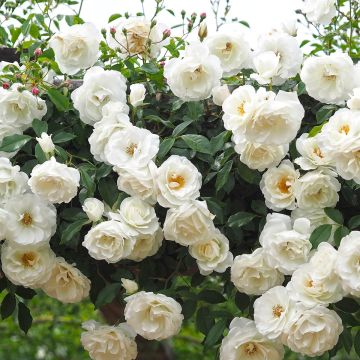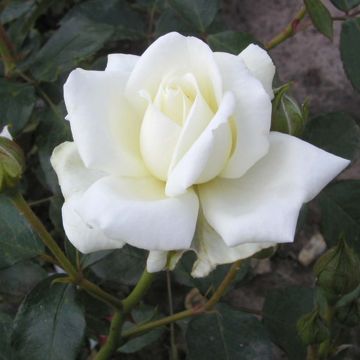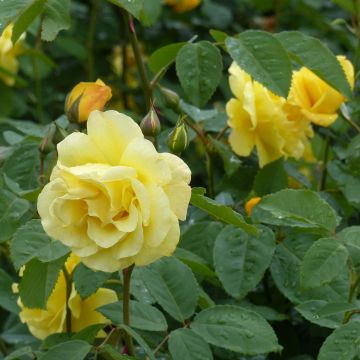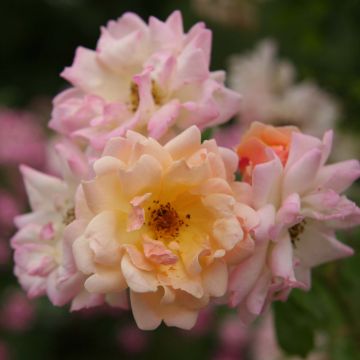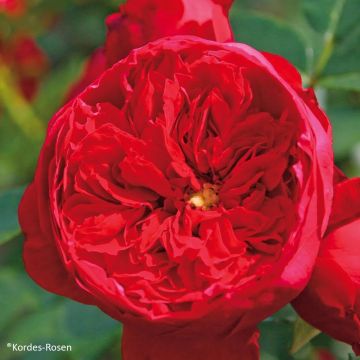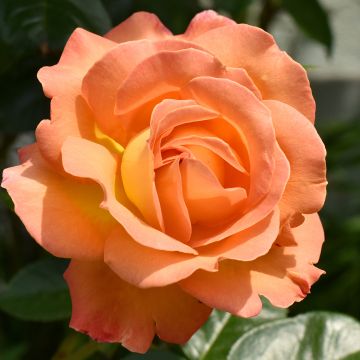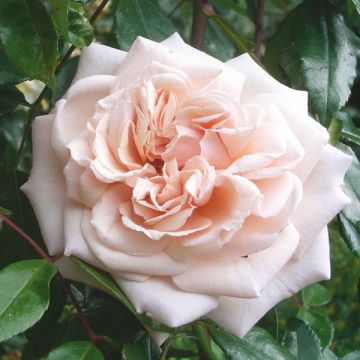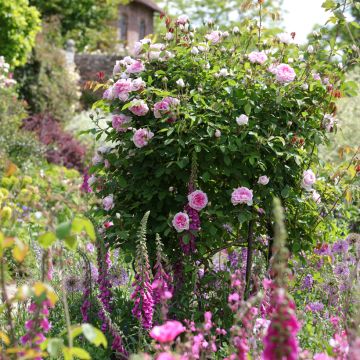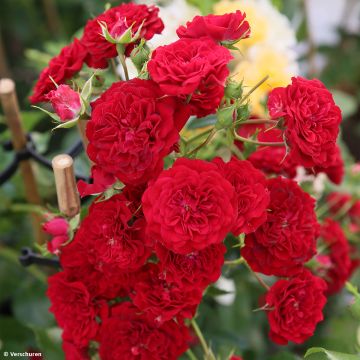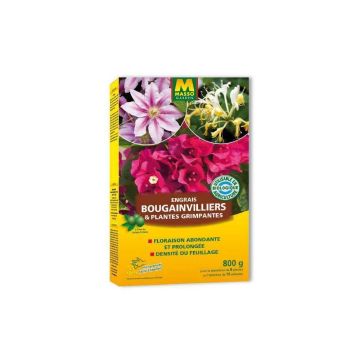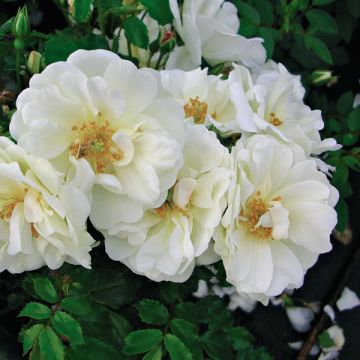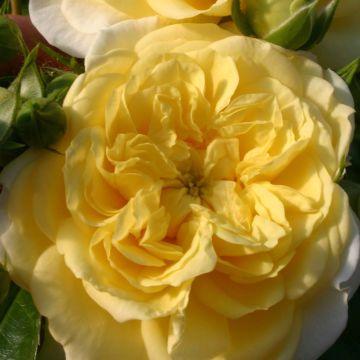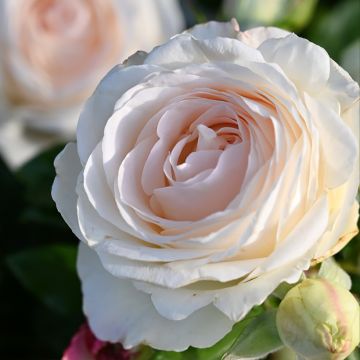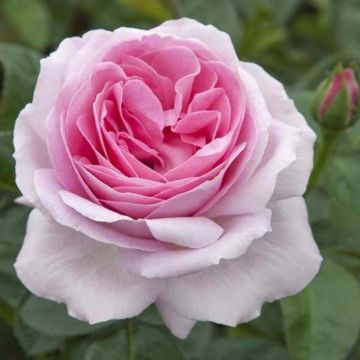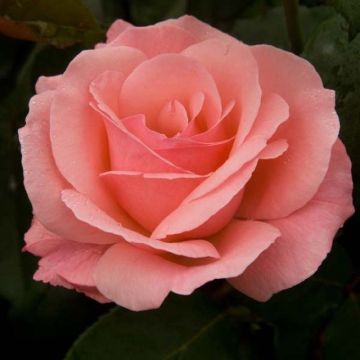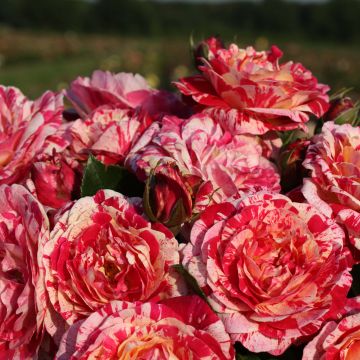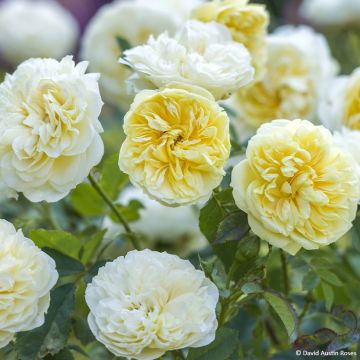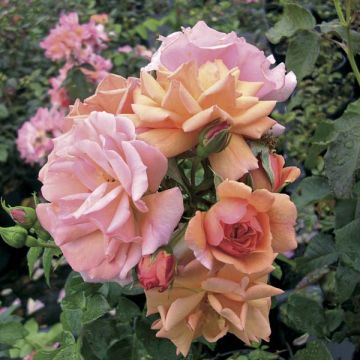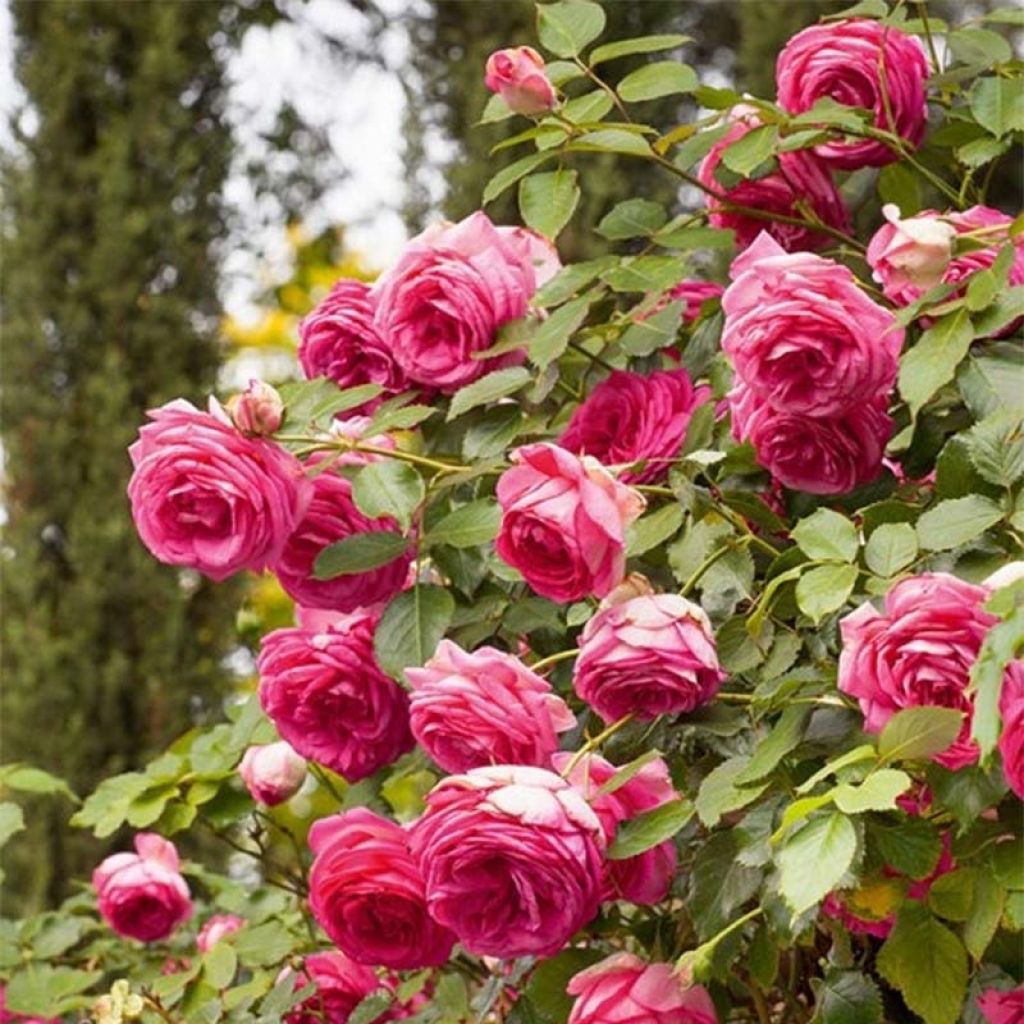

Rosa Cyclamen 'Pierre de Ronsard' - Climbing Rose
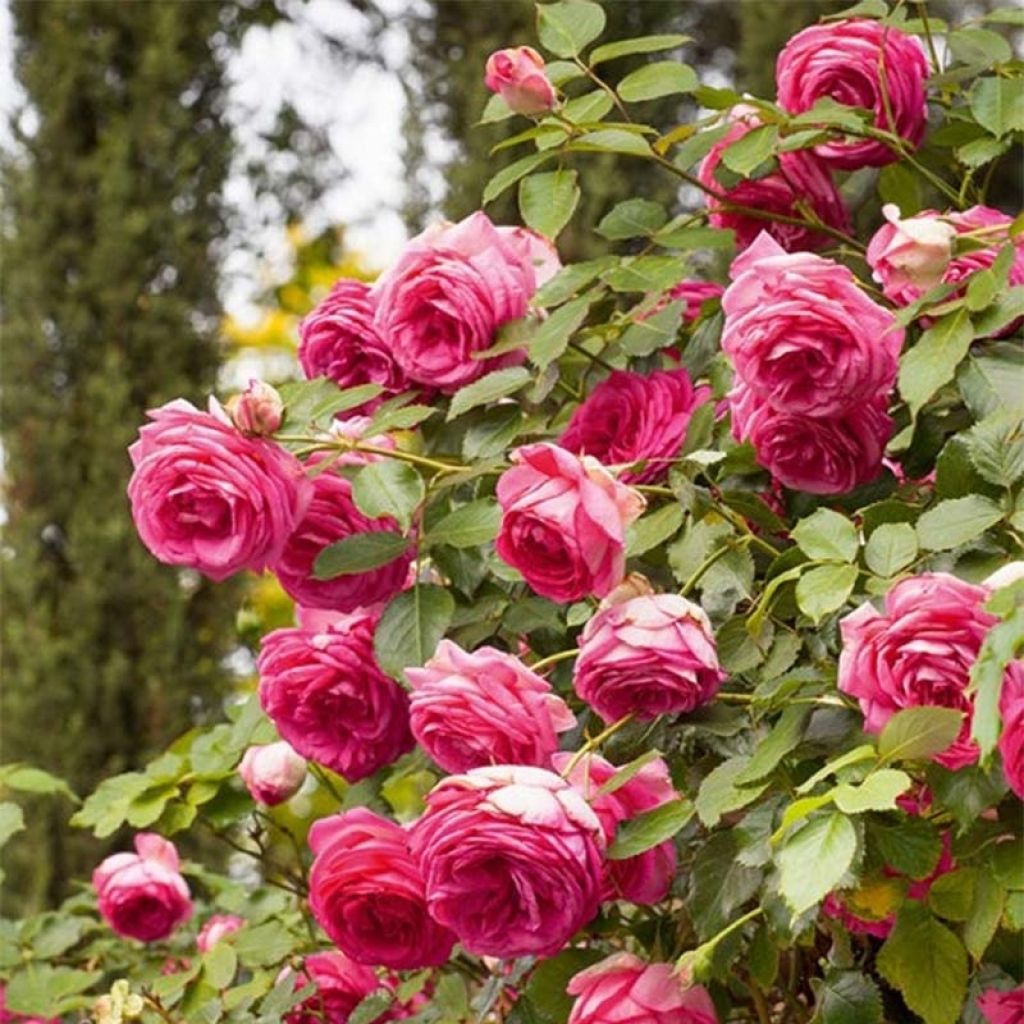

Rosa Cyclamen 'Pierre de Ronsard' - Climbing Rose
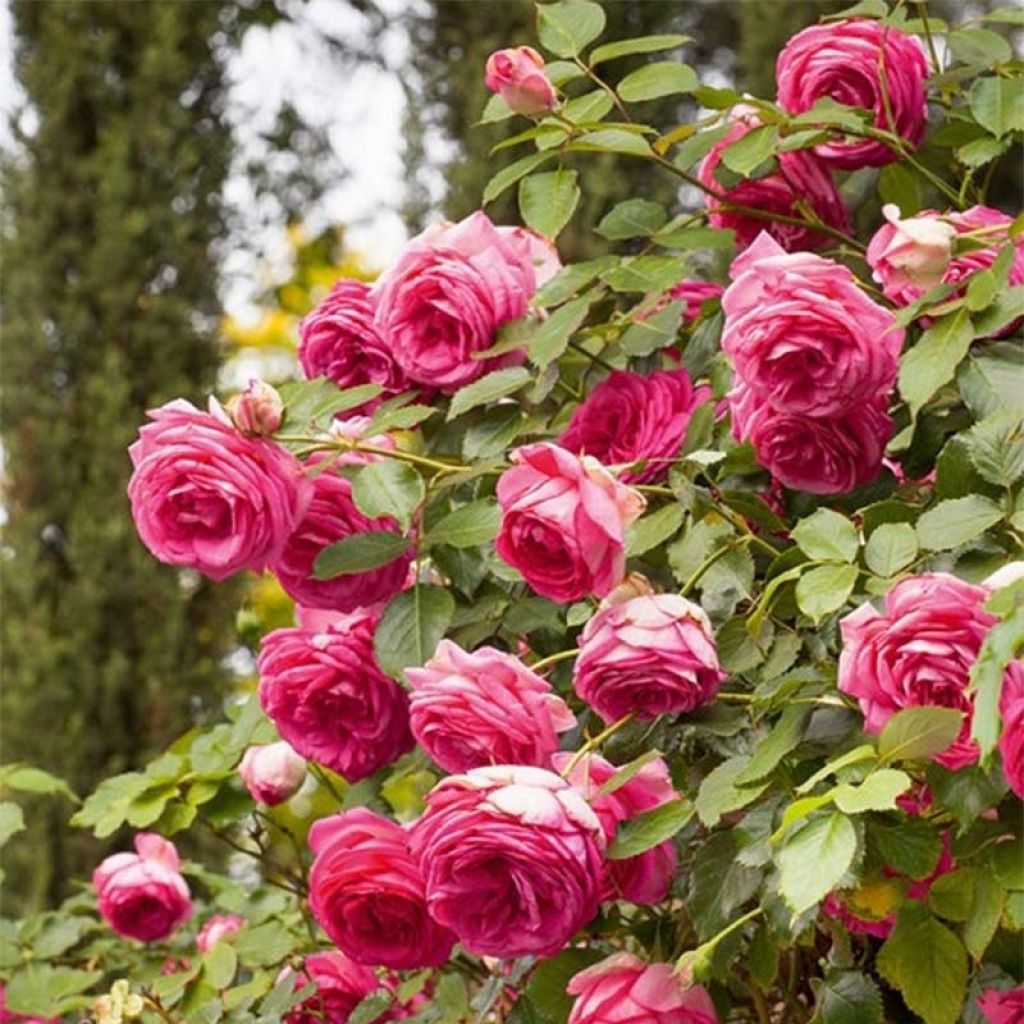

Rosa Cyclamen 'Pierre de Ronsard' - Climbing Rose
Rosa Cyclamen 'Pierre de Ronsard' - Climbing Rose
Rosa Cyclamen Pierre de Ronsard ®
Rose
This item cannot be shipped to the selected country
Delivery charge from €5.90
Delivery charge from €5.90
Delivery to Corse prohibited
More information
Schedule delivery date,
and select date in basket
This plant carries a 24 months recovery warranty
More information
We guarantee the quality of our plants for a full growing cycle, and will replace at our expense any plant that fails to recover under normal climatic and planting conditions.
From €5.90 for pickup delivery and €6.90 for home delivery
Express home delivery from €8.90.
From €5.90 for pickup delivery and €6.90 for home delivery
Express home delivery from €8.90.
Delivery to Corse prohibited: UE law prohibits the import of this plant from mainland France to Corse as part of the fight against Xylella fastidiosa. Please accept our sincere apologies.
More information

Does this plant fit my garden?
Set up your Plantfit profile →
Description
The climbing rose 'Cyclamen Pierre de Ronsard' (Margaret Mae) is a deep pink flowered version of the famous 'Pierre de Ronsard' to which it is related. It belongs to the Romantica series created by Meilland, perfectly combining old roses' grace and touching beauty with the floribundity and resistance of modern roses. This climbing rose gives an impression of vigour, health, and charm due to its well-double, old-fashioned roses, where silvery reflections shimmer on the reverse of its warm pink petals. It has good disease resistance, a light fragrance, and a generous flowering, especially when planted in the sun.
'Pink Eden Rose - Margaret Mae’' is a modern climbing rose hybrid tea introduced in 2017 by the rose breeder Meilland. This sarmentous bush with an upright habit reaches an average height of 2.75 m (9ft) or more, with a spread of 1.50 m (5ft) at maturity, and has a rapid growth rate. It produces stiff, strong, thorny branches that bear elegant, medium green foliage, is slightly shiny and highly resistant to rose diseases if the growing conditions are correct. All summer, if faded flowers are removed and the soil remains moist, its large flowers with 70 petals, measuring 12 cm (5in) in diameter, emerge from big, round, pink buds, then open into highly double and globular roses divided into quarters, which open better under the sun and in a rather warm climate. The petals, of deep pink colour, have a reverse side of a warmer, lighter, almost silvery pink. They create a beautiful rose gradation on the scale of the flower. They are grouped in small clusters of 3, carried at the end of long shoots from the current year or emerging on 2-year-old stems. Their fragrance is light.
'Cyclamen Pierre de Ronsard' is a full-sun rose, like its parent 'Pierre de Ronsard', and its vigor is ensured in a well-amended garden soil that does not dry out too much in summer. It is a perfect rose for romantic borders and bouquets. It deserves a wall exposed to the sun (not scorching, however) or a structure large enough to support its flower-covered growth. It allows for magnificent displays throughout the summer, requiring very little maintenance other than regular watering in summer during hot and prolonged droughts. The 'Romantica®' rose series offers many possibilities for combinations, for example planting Red Eden Rose, Allegro® (deep purple), the famous Pierre de Ronsard, Palais Royal (white), and Auguste Renoir (bengal rose) side by side. They can also be paired with easy-to-grow large-flowered clematis such as 'Etoile Violette' or 'Broughton Star'. They are good companions for phlox, delphiniums, foxgloves, catmints, and tall baby's breath.
Report an error about the product description
Rosa Cyclamen 'Pierre de Ronsard' - Climbing Rose in pictures
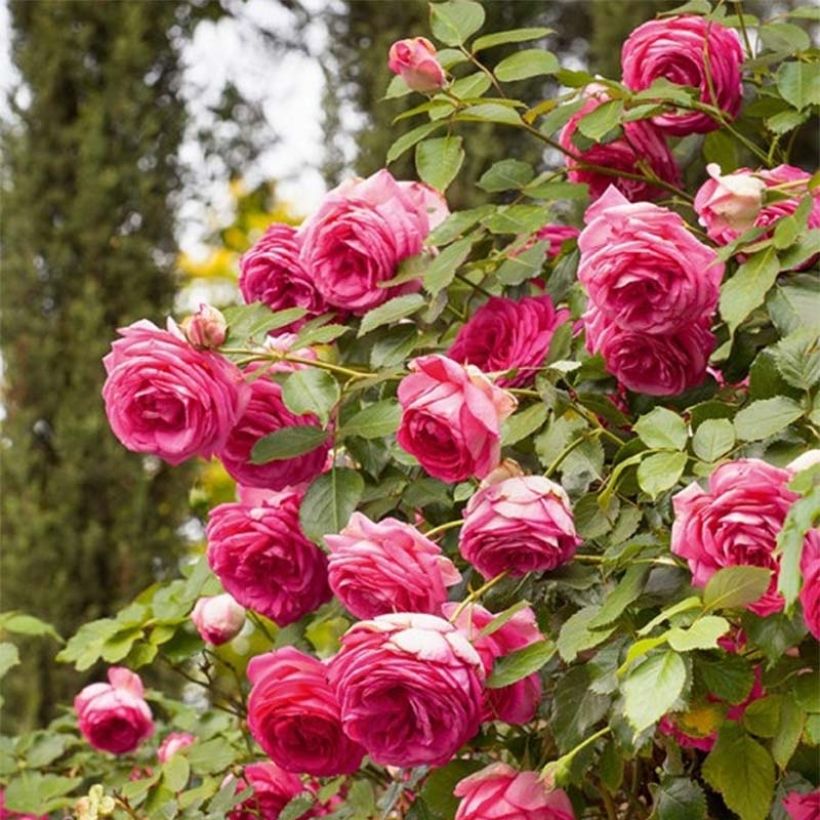

Plant habit
Flowering
Foliage
Botanical data
Rosa
Cyclamen Pierre de Ronsard ®
Rosaceae
Rose
® Margaret Mae
Cultivar or hybrid
Rosa canina Laxa (Wrapped bare root, 4L/5L pot)
Other Climbing Roses
Planting and care
The 'Pink Eden Rose' rose adapts to all types of soil, as long as the planting is well cared for and it does not lack water or nutrients to get off to a good start. Plant it in well-worked and well-drained ordinary soil and in a sunny position (avoid a south-facing wall) to make it more floriferous. Plant it in autumn, never when it freezes.
The 2-year-old branches are the most floriferous. It is useful to reduce the stems that flowered the previous year to 3 or 4 buds, or pruned to 15 cm (6in). The new sturdy stems will be trained, and the old ones removed if necessary. Very hardy, this rose withstands -25°C (-13°F). Removing dead wood in winter and removing faded flowers may be useful if hips are not desired. If necessary, light pruning can be done in spring after the risk of frost. Climbing roses can also grow freely if there is ample space.
If you plant a climbing or rambling rose next to a living tree, the root system of the rose will compete with the already well-established tree. To control watering, a trick: plant the rose in a large container with a perforated bottom, at the base of the tree. The tree roots will not penetrate the container for at least a year. Remove the container after 1 year, for example, by cutting one side without disturbing the rose's root system. The rose will have had time to develop its root system deeply and will be more resistant.
Roses may develop unsightly spots in late summer, but this is a natural occurrence and does not harm the plant's development.
Planting period
Intended location
Care
-
, onOrder confirmed
Reply from on Promesse de fleurs
Roses by purpose
Haven't found what you were looking for?
Hardiness is the lowest winter temperature a plant can endure without suffering serious damage or even dying. However, hardiness is affected by location (a sheltered area, such as a patio), protection (winter cover) and soil type (hardiness is improved by well-drained soil).

Photo Sharing Terms & Conditions
In order to encourage gardeners to interact and share their experiences, Promesse de fleurs offers various media enabling content to be uploaded onto its Site - in particular via the ‘Photo sharing’ module.
The User agrees to refrain from:
- Posting any content that is illegal, prejudicial, insulting, racist, inciteful to hatred, revisionist, contrary to public decency, that infringes on privacy or on the privacy rights of third parties, in particular the publicity rights of persons and goods, intellectual property rights, or the right to privacy.
- Submitting content on behalf of a third party;
- Impersonate the identity of a third party and/or publish any personal information about a third party;
In general, the User undertakes to refrain from any unethical behaviour.
All Content (in particular text, comments, files, images, photos, videos, creative works, etc.), which may be subject to property or intellectual property rights, image or other private rights, shall remain the property of the User, subject to the limited rights granted by the terms of the licence granted by Promesse de fleurs as stated below. Users are at liberty to publish or not to publish such Content on the Site, notably via the ‘Photo Sharing’ facility, and accept that this Content shall be made public and freely accessible, notably on the Internet.
Users further acknowledge, undertake to have ,and guarantee that they hold all necessary rights and permissions to publish such material on the Site, in particular with regard to the legislation in force pertaining to any privacy, property, intellectual property, image, or contractual rights, or rights of any other nature. By publishing such Content on the Site, Users acknowledge accepting full liability as publishers of the Content within the meaning of the law, and grant Promesse de fleurs, free of charge, an inclusive, worldwide licence for the said Content for the entire duration of its publication, including all reproduction, representation, up/downloading, displaying, performing, transmission, and storage rights.
Users also grant permission for their name to be linked to the Content and accept that this link may not always be made available.
By engaging in posting material, Users consent to their Content becoming automatically accessible on the Internet, in particular on other sites and/or blogs and/or web pages of the Promesse de fleurs site, including in particular social pages and the Promesse de fleurs catalogue.
Users may secure the removal of entrusted content free of charge by issuing a simple request via our contact form.
The flowering period indicated on our website applies to countries and regions located in USDA zone 8 (France, the United Kingdom, Ireland, the Netherlands, etc.)
It will vary according to where you live:
- In zones 9 to 10 (Italy, Spain, Greece, etc.), flowering will occur about 2 to 4 weeks earlier.
- In zones 6 to 7 (Germany, Poland, Slovenia, and lower mountainous regions), flowering will be delayed by 2 to 3 weeks.
- In zone 5 (Central Europe, Scandinavia), blooming will be delayed by 3 to 5 weeks.
In temperate climates, pruning of spring-flowering shrubs (forsythia, spireas, etc.) should be done just after flowering.
Pruning of summer-flowering shrubs (Indian Lilac, Perovskia, etc.) can be done in winter or spring.
In cold regions as well as with frost-sensitive plants, avoid pruning too early when severe frosts may still occur.
The planting period indicated on our website applies to countries and regions located in USDA zone 8 (France, United Kingdom, Ireland, Netherlands).
It will vary according to where you live:
- In Mediterranean zones (Marseille, Madrid, Milan, etc.), autumn and winter are the best planting periods.
- In continental zones (Strasbourg, Munich, Vienna, etc.), delay planting by 2 to 3 weeks in spring and bring it forward by 2 to 4 weeks in autumn.
- In mountainous regions (the Alps, Pyrenees, Carpathians, etc.), it is best to plant in late spring (May-June) or late summer (August-September).
The harvesting period indicated on our website applies to countries and regions in USDA zone 8 (France, England, Ireland, the Netherlands).
In colder areas (Scandinavia, Poland, Austria...) fruit and vegetable harvests are likely to be delayed by 3-4 weeks.
In warmer areas (Italy, Spain, Greece, etc.), harvesting will probably take place earlier, depending on weather conditions.
The sowing periods indicated on our website apply to countries and regions within USDA Zone 8 (France, UK, Ireland, Netherlands).
In colder areas (Scandinavia, Poland, Austria...), delay any outdoor sowing by 3-4 weeks, or sow under glass.
In warmer climes (Italy, Spain, Greece, etc.), bring outdoor sowing forward by a few weeks.

































